VW ID.4 vs Hyundai Inster - Differences and prices compared
Compare performance (340 HP vs 115 HP), boot space and price (34600 £ vs 20500 £ ) at a glance. Find out which car is the better choice for you – VW ID.4 or Hyundai Inster?
Costs and Efficiency:
Price and efficiency are often the first things buyers look at. Here it becomes clear which model has the long-term edge – whether at the pump, the plug, or in purchase price.
Hyundai Inster has a clearly advantage in terms of price – it starts at 20500 £ , while the VW ID.4 costs 34600 £ . That’s a price difference of around 14087 £.
In terms of energy consumption, the advantage goes to the Hyundai Inster: with 14.30 kWh per 100 km, it’s hardly perceptible more efficient than the VW ID.4 with 15.60 kWh. That’s a difference of about 1.30 kWh.
As for electric range, the VW ID.4 performs distinct better – achieving up to 569 km, about 199 km more than the Hyundai Inster.
Engine and Performance:
Under the bonnet, it becomes clear which model is tuned for sportiness and which one takes the lead when you hit the accelerator.
When it comes to engine power, the VW ID.4 has a convincingly edge – offering 340 HP compared to 115 HP. That’s roughly 225 HP more horsepower.
In acceleration from 0 to 100 km/h, the VW ID.4 is convincingly quicker – completing the sprint in 5.40 s, while the Hyundai Inster takes 10.60 s. That’s about 5.20 s faster.
There’s also a difference in torque: VW ID.4 pulls significantly stronger with 679 Nm compared to 147 Nm. That’s about 532 Nm difference.
Space and Everyday Use:
Whether family car or daily driver – which one offers more room, flexibility and comfort?
Seats: VW ID.4 offers somewhat more seating capacity – 5 vs 4.
In curb weight, Hyundai Inster is decisively lighter – 1380 kg compared to 1975 kg. The difference is around 595 kg.
In terms of boot space, the VW ID.4 offers decisively more room – 543 L compared to 280 L. That’s a difference of about 263 L.
When it comes to payload, VW ID.4 evident takes the win – 551 kg compared to 357 kg. That’s a difference of about 194 kg.
Who wins the race in the data check?
The VW ID.4 sits well ahead of its rival in the objective data comparison.
This result only shows which model scores more points on paper – not which of the two cars feels right for you.
Costs and Consumption
View detailed analysis
Engine and Performance
View detailed analysis
Dimensions and Body
View detailed analysis
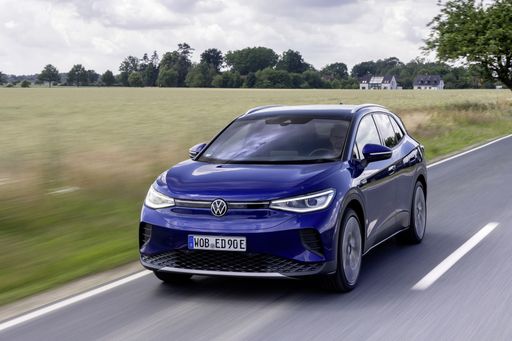
VW ID.4
VW ID.4
The VW ID.4 is a calm, roomy electric SUV that turns everyday driving into a quietly confident experience, its practical packaging and smooth manners tailored perfectly for family life. Volkswagen's solid build and intuitive interior tech mean you get electric practicality without the sci‑fi theatrics, making the ID.4 a sensible, surprisingly likable choice for most buyers.
details
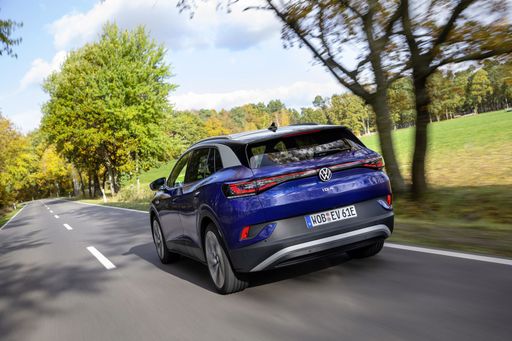
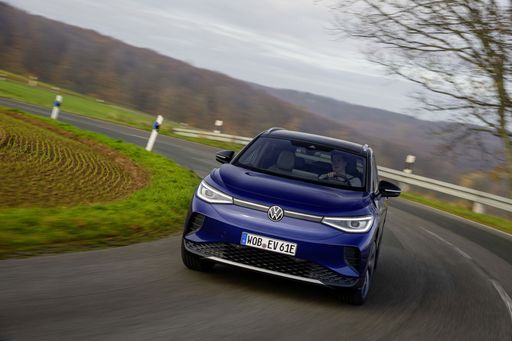
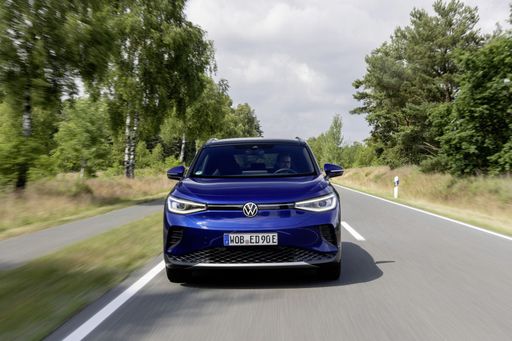
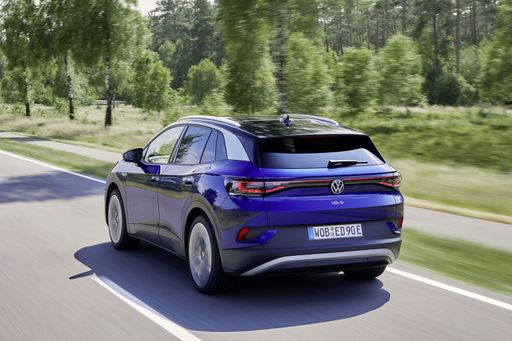

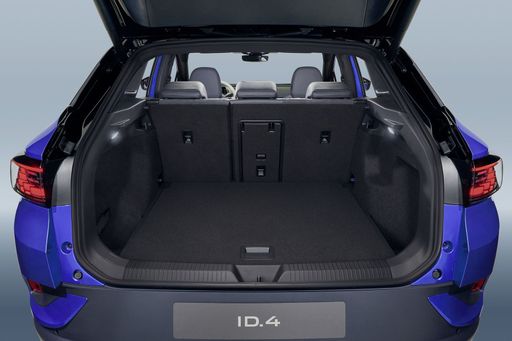
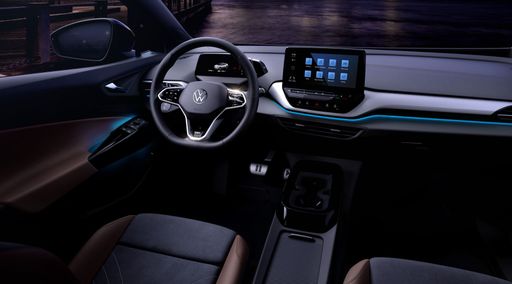
Hyundai Inster
The Inster has quickly captured the attention of automotive enthusiasts with its striking design and dynamic performance. This model seamlessly blends advanced technology with comfort, making it an ideal choice for both daily commutes and adventurous road trips. With its spacious interior and innovative features, the Inster promises an exhilarating driving experience that doesn’t compromise on practicality.
details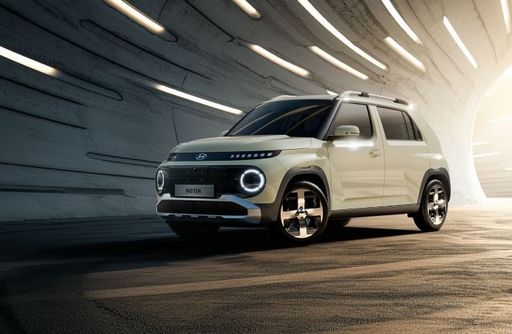
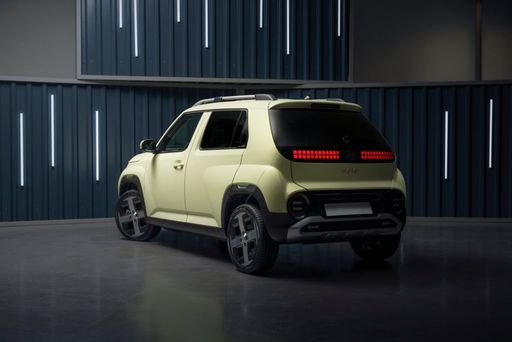
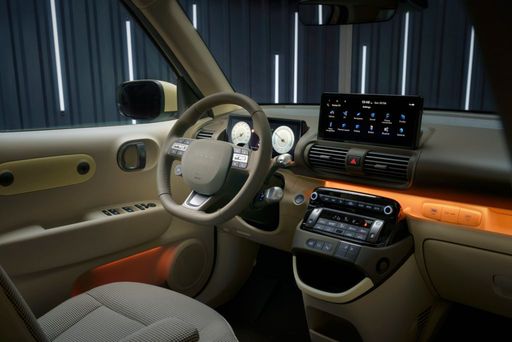
Costs and Consumption |
|
|---|---|
|
Price
34600 - 47200 £
|
Price
20500 - 25800 £
|
|
Consumption L/100km
-
|
Consumption L/100km
-
|
|
Consumption kWh/100km
15.6 - 17 kWh
|
Consumption kWh/100km
14.3 - 15.1 kWh
|
|
Electric Range
356 - 569 km
|
Electric Range
327 - 370 km
|
|
Battery Capacity
52 - 77 kWh
|
Battery Capacity
-
|
|
co2
0 g/km
|
co2
0 g/km
|
|
Fuel tank capacity
-
|
Fuel tank capacity
-
|
Dimensions and Body |
|
|---|---|
|
Body Type
SUV
|
Body Type
SUV
|
|
Seats
5
|
Seats
4
|
|
Doors
5
|
Doors
-
|
|
Curb weight
1975 - 2248 kg
|
Curb weight
1380 - 1433 kg
|
|
Trunk capacity
543 L
|
Trunk capacity
238 - 280 L
|
|
Length
4582 - 4584 mm
|
Length
-
|
|
Width
1852 mm
|
Width
1610 mm
|
|
Height
1619 - 1634 mm
|
Height
-
|
|
Max trunk capacity
1575 L
|
Max trunk capacity
-
|
|
Payload
515 - 551 kg
|
Payload
317 - 357 kg
|
Engine and Performance |
|
|---|---|
|
Engine Type
Electric
|
Engine Type
Electric
|
|
Transmission
Automatic
|
Transmission
Automatic
|
|
Transmission Detail
Reduction Gearbox
|
Transmission Detail
Reduction Gearbox
|
|
Drive Type
Rear-Wheel Drive, All-Wheel Drive
|
Drive Type
Front-Wheel Drive
|
|
Power HP
170 - 340 HP
|
Power HP
97 - 115 HP
|
|
Acceleration 0-100km/h
5.4 - 9 s
|
Acceleration 0-100km/h
10.6 - 11.7 s
|
|
Max Speed
160 - 180 km/h
|
Max Speed
-
|
|
Torque
310 - 679 Nm
|
Torque
147 Nm
|
|
Number of Cylinders
-
|
Number of Cylinders
-
|
|
Power kW
125 - 250 kW
|
Power kW
71 - 85 kW
|
|
Engine capacity
-
|
Engine capacity
-
|
General |
|
|---|---|
|
Model Year
2023 - 2025
|
Model Year
2025
|
|
CO2 Efficiency Class
A
|
CO2 Efficiency Class
A
|
|
Brand
VW
|
Brand
Hyundai
|
Is the VW ID.4 offered with different drivetrains?
Available configurations include Rear-Wheel Drive or All-Wheel Drive.
